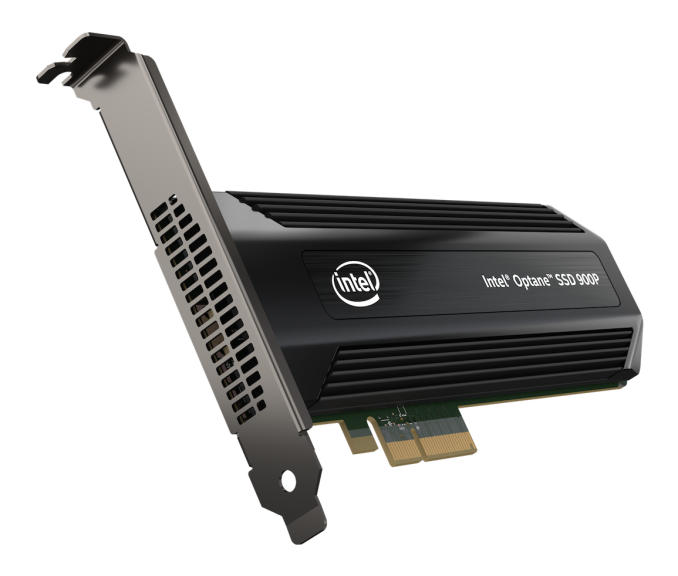In addition to the
Intel Optane DC P4800X SSD released this year for data centers and
Optane Memory caching memory, Intel releases a small series of SSDs for high-performance
Optane 900P workstations . The new
XPoint- based SSD technology is designed for enthusiasts and professionals involved in photo and video processing, game development, etc.

Intel Optane SSD 900P is available in two volumes - 280 and 480 GB and has a PCIe drive format (half height, half length - HHHL), a less capacious model is also available in the U.2 form factor. Comparative characteristics of drives are given in the table.
| 280 GB | 480 GB |
|---|
| Controller | Intel SLL3D |
| Interface | PCIe 3.0 x4 |
| Form factor | PCIe card or
2.5 "15mm U.2 | PCIe card |
| Afterbirth. reading | 2500 MB / s |
| Afterbirth. a record | 2000 MB / s |
| Random IOPS reading | 550k |
| Random IOPS Record | 500k |
| power usage | 14 watts maximum
In idle 5 W |
| Load | 10 DWPD |
| Warranty | 5 years |
| Cost of | $ 389 | $ 599 |
| Price 1 GB | $ 1.39 | $ 1.25 |
As you can see, if the indicators of sequential reads and writes cannot be called outstanding among NVMe, then in the field of random reading / writing 900 ahead of the entire consumer market. Passport load also gives them high-class players.
Now about the shortcomings. Volumes of drives are still small, and this is a minus in relation to heavy content for which they are proposed to be used. The price for a GB today is almost twice as high as that of NAND drives, with all the above reservations. The high power consumption of the Intel Optane SSD 900P also draws attention, so we don’t see in the lineup more miniature form factors for portable devices.
In general, we can say that at the moment we are witnessing the evolutionary development of the Intel Optane line, the release of the first devices in its various segments, as well as market intelligence. It seems that more will be more interesting, because Intel makes big bets on Optane.